Community Contribution and Local Product Development
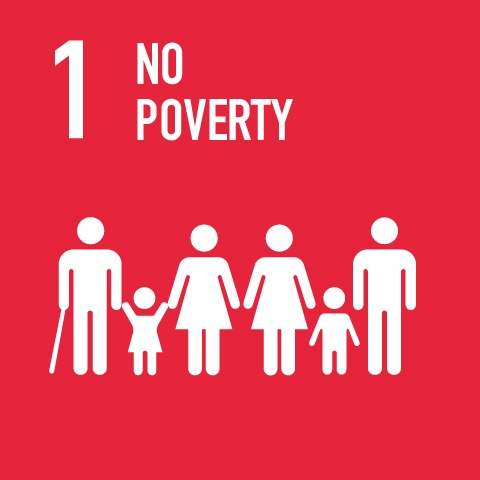

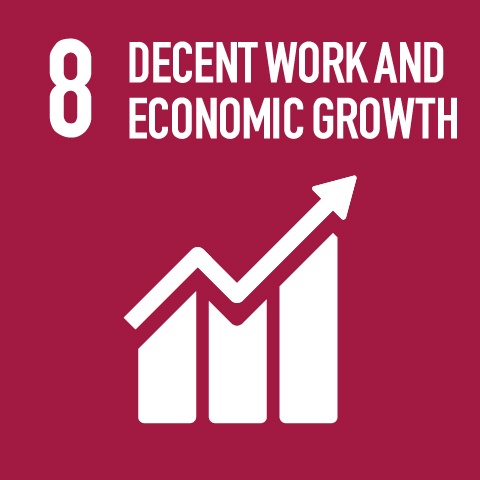
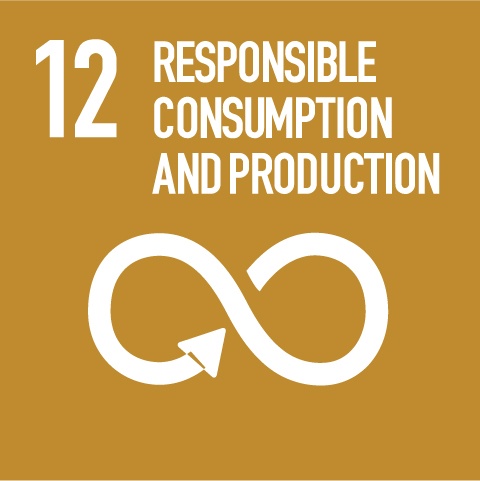
Central Retail is committed to work with local communities to create shared value, help narrow the inequality gap, and improve the communities and society’s quality of life at large. Central Retail also aims to create progress and promote a good quality of life for everyone through cooperation with stakeholders.
While Central Retail is committed to create shared value with the community, there are some challenges Central Retail may face. When Central Retail invests in local product development projects, financial support needed for the development of local products might bear higher cost due to economies of scale if compare against large suppliers. Operationally, ensuring consistent quality from local communities might also require additional quality control measurement and training, as well as close collaboration. Competing against established brands can be challenging for local products. As a result, building awareness of unfamiliar local products among customers might bear costs for targeted marketing campaigns. Therefore, Central Retail established a process that provides a comprehensive approach to address these challenges.
Despite these challenges, community contribution and local product development initiatives open up many opportunities for Central Retail. Contributing to community and developing local products, Central Retail can enhance brand image and attract customers who value ethical sourcing and sustainability. Offering unique, locally sourced products can set Central Retail apart from their competitors, potentially leading to market share growth and access to new customer segments who appreciate authentic, locally produced goods. By embracing these challenges with a strategic and collaborative approach, Central Retail can transform its activities on community contribution and local product development into a powerful force for positive impact and sustainable growth.
Impact to Business, Stakeholders, and Human Rights
Community contribution and local product development can have a significant impact on Central Retail’s business. These programs can attract new customers who value Central Retail’s commitment to social responsibility, leading to increased sales and revenue; and build positive brand reputation, and customer satisfaction. Furthermore, Central Retail can strengthen its relationship and create the social license to operate with the communities and other stakeholders.
Community contribution and local product development can set in motion of a wave of positive impacts that ripple throughout Central Retail’s stakeholders. In this case, the communities who are also suppliers for Central Retail could experience local economic revitalization, job creation, marketaccess, and quality of life improvement. Central Retail’s support for local businesses, educational programs, and volunteer opportunities also fosters a sense of community pride and social cohesion, while also preserving local wisdom and traditions.
Regards employees, community contribution and local product development programs provide space for personal and professional growth, nurturing their skills, leadership potential, and professional networks. Customers are treated with a unique shopping experience, gaining access to authentic, locally sourced products that differentiate Central Retail from the others. Governments benefit from the social impacts created as Central Retail’s involvement helps address social issues and alleviate the burden on government-funded programs. Investors and shareholders gain the rewards of enhanced financial performance, stemming from Central Retail’s ability to attract and retain loyal customers, bolster its brand reputation, and drive innovation. In essence, these programs reinforce each other, creating a virtuous cycle of sustainability and stakeholder value creation.
Management Approach
To effectively manage and oversee community contribution and local product development programs, Central Retail establishes a governance structure that clearly defines roles, responsibilities, and accountabilities. At the Board level, the Corporate Governance and Sustainable Development Committee is responsible for providing strategic direction and oversight for community contribution and local product development programs.
ESG representatives report the performance to the executives and the Corporate Governance and Sustainability Committee on an annual basis. The ESG representatives and Sustainable Development Officers are responsible for leading the implementation and execution of Central Retail’s community contribution and local product development strategy to integrate the CSV framework into relevant business operations. This involves incorporating local sourcing into procurement practices, partnering with local organizations for community outreach programs, and developing employee volunteer initiatives. At the operational level, employees are encouraged to volunteer and participate in sharing knowledge with the communities or suggesting innovative ways to support local product development. Central Retail has established a Corporate Social Responsibility Policy to ensure effective communication and collaboration across all levels.
Creating Shared Values (CSV) Process
One of the key targets announced under the ReNEW Strategy is to generate 5,400 million baht in annual income for communities by 2030. Central Retail plans to achieve this target through expanding Creating Share Values (CSV) projects to additional communities. CSV is Central Retail’s main approach to implement community contribution and product development programs as shown below.
Corporate Social Responsibility Policy
1. Community Selection
Selection of communities and project location with the following criteria:
- Product quality, strong potential for product development.
- Outstanding identity in cultural, local wisdom and community way of life.
- Concerning for environmental conservation, forest restoration and environmental management in the community.
- Community leaders have a leadership skill to collaborate with their community members in order to ensure alignment in directions to improve quality of life and community income.
- Community transparency
2. Community Engagement
Engaging with community members through surveys, focus groups, and public participation is essential for gathering feedback and information. This ensures that community contribution and local product development programs provide benefits that align with actual community needs.
3. Integrated Community Contribution and Value Enhancement
Product Design and Development
- Collaborate with communities to leverage local wisdom and traditions in developing new and innovative products.
- Enhance local products by making them more appealing to the global market with value-added features.
Capacity Building
- Share retail business knowledge and expertise through training and workshops for community members on product design, production techniques, quality control, marketing, etc.
Facilities and Equipment Support
- Support the investment of critical facilities and equipment for production and packaging.
Distribution Channels Support
- Utilize existing sales outlets to provide support and co-create value with the community through department stores, online platforms, and other community programs such as Jing Jai Farmer’s Market.
4. Continuous Monitoring and Improvement
- Regularly monitor the progress and impacts of different programs to identify areas for improvement and ensure long-term profits for both the communities and Central Retail.
- Foster ongoing communication and engagement with the communities with an annual focus group to adjust projects in accordance with the evolving needs and circumstances of the communities.
- Establish whistleblowing channels as safeguards for concerned communities and societies, even when no problems are found.
Project Highlights
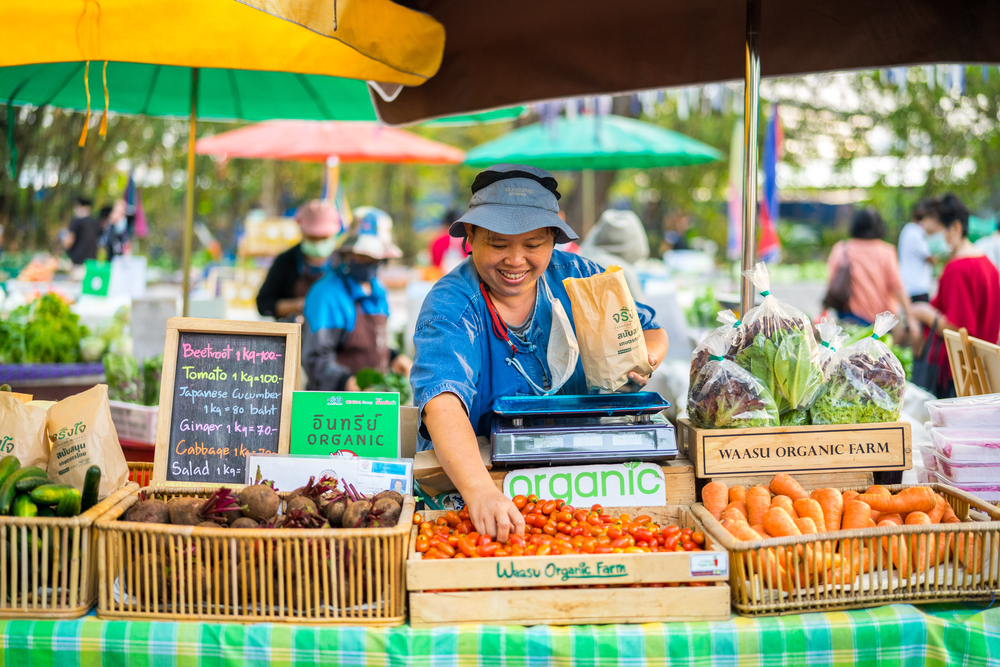
Jing Jai Farmers’ Market
With the commitment to create shared value with the local communities, Central Retail initiated Jing Jai Farmers’ Market to directly connect local farmers with consumers. Jing Jai Farmers’ Market enables farmers to sell their vegetables, fruits, and local specialties while allowing them to meet with customers to build relationships, exchange ideas and knowledge, and increase their income. Consumers also get fresh and environmentally friendly products. This all leads to a better quality of life for the community and consumers.
In 2023, Jing Jai Farmers’ Market project has expanded to 32 branches across 28 provinces nationwide, creating business opportunities for over 40,000 farmers. This initiative has generated income in over 300 million baht for Central Retail to supported 10,200 households. These impacts demonstrate that the Jing Jai Farmers’ Market is a powerful force for sustainable economic development of the communities.
Jing Jai Farmers’ Market
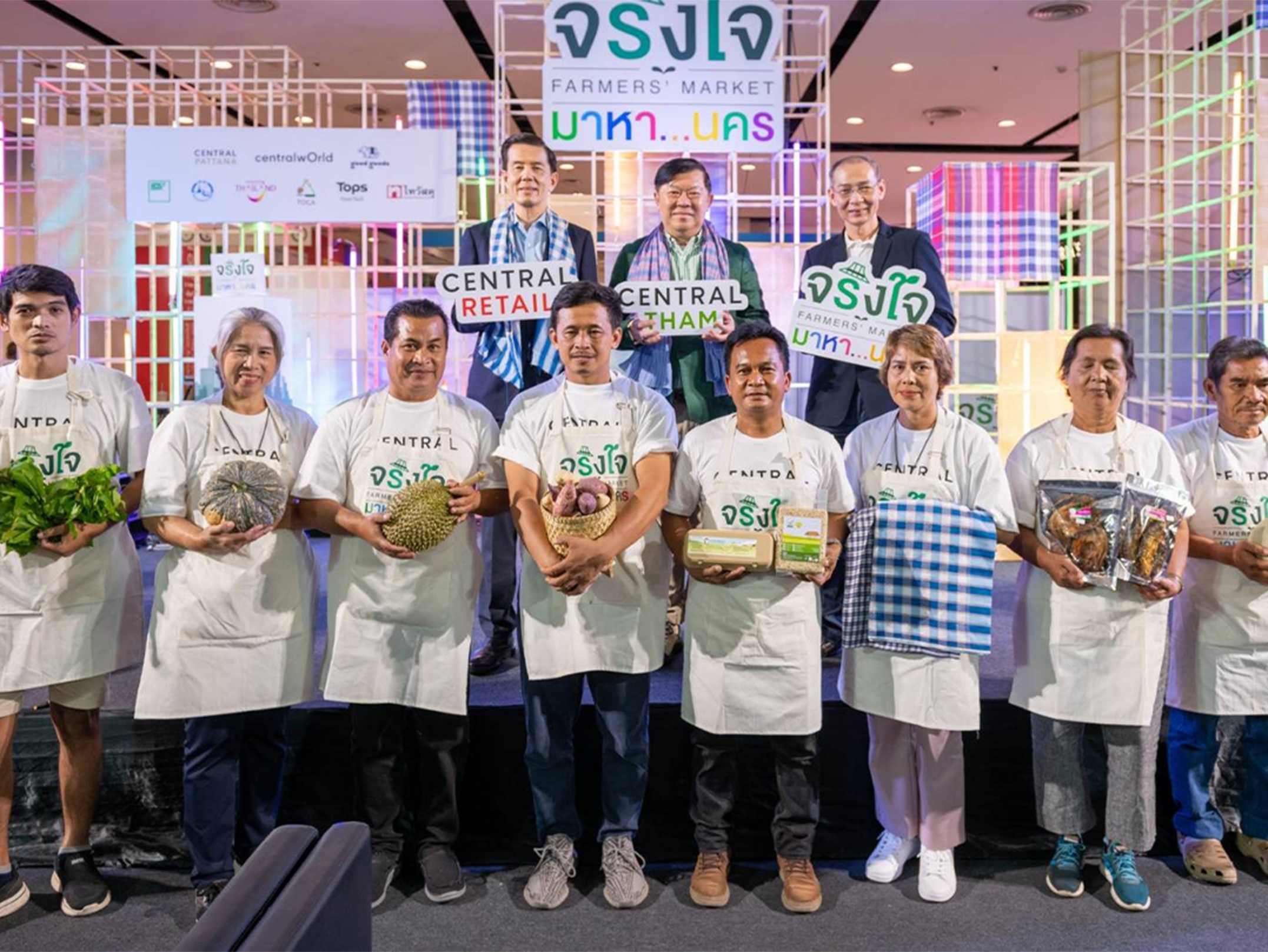
Nan Organic Community Enterprise Network
Central Retail initiated the Nan Organic Community Enterprise Network with the objective of developing human capital and contributing to the community and climate actions. Central Retail constructed a learning center and a processing facility to help the community in producing agricultural and community products, as well as provides support on branding and marketing. With these contributions, Central Retail can secure a reliable source of organic produce and improve the local’s livelihood with increased income. Additionally, this project contributes to climate efforts by expanding green space dedicated to sustainable crops such as cacao, cashew nuts, and pumpkins. The project has empowered 179 community members, launched 16 processed products, expanded green space by over 257 rais, boosted community income beyond 2.7 million baht, and enhanced access to seasonal fruits and vegetables.
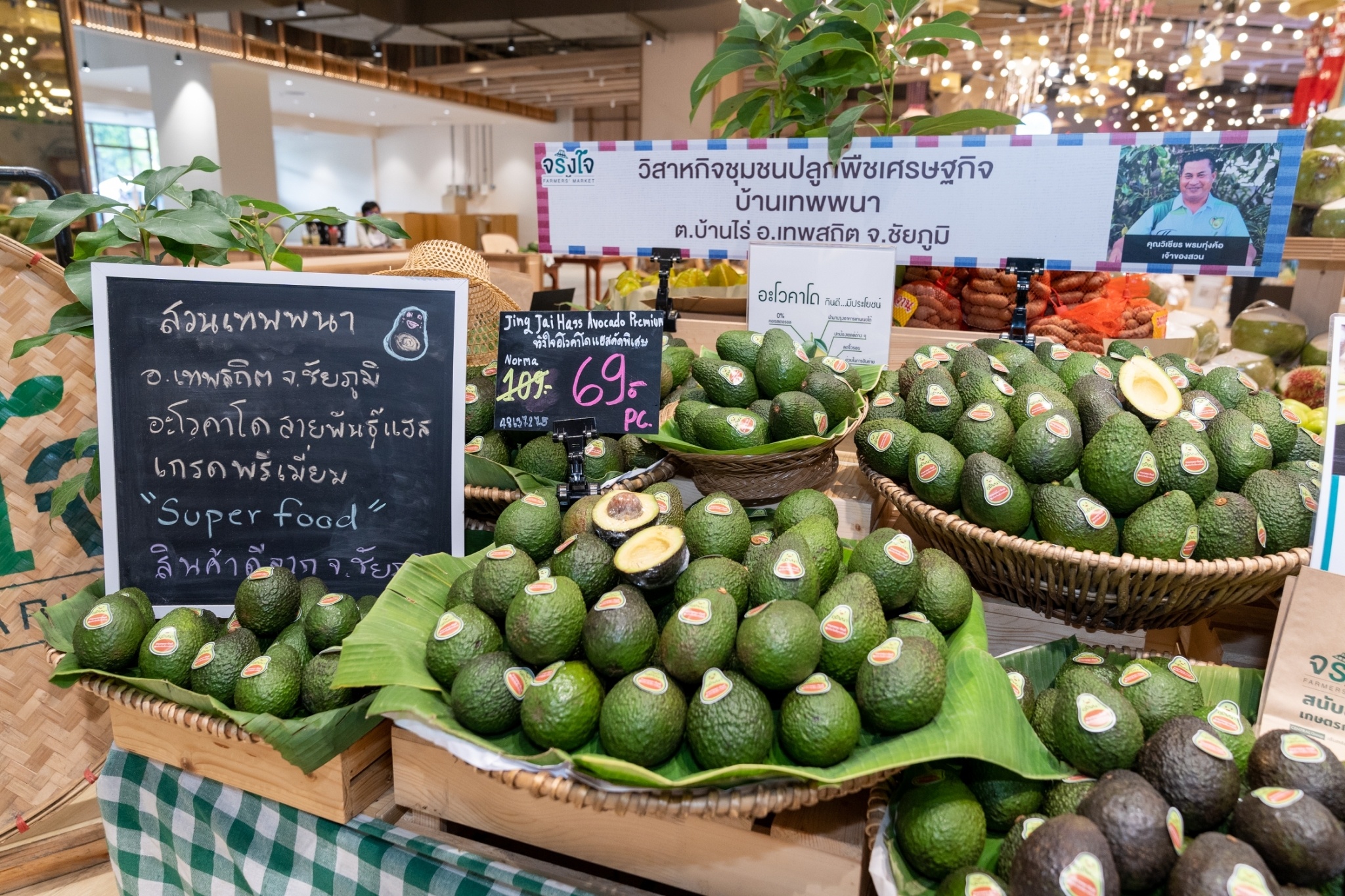
Ban Theppana Community Enterprise
Ban Theppana Community Enterprise, located in Chaiyaphum province, aims to support the community development effort by establishing a learning center, restoring the ecosystem, and promoting sustainable community tourism. The learning center enables knowledge sharing and skill development in agriculture and community product creation. In addition, Central Retail supports the construction on facilities for packing and processing agricultural products, ensuring quality and efficiency in production. Central Retail restores the ecosystem through providing avocado seedlings and plant them over 3,000 rais, contributing to green area expansion. Central Retail also supports the establishment of shops and cafes to promote tourism in the area. Furthermore, Central Retail assists the community in branding and promotion, as well as supports distribution channels in major stores such as Tops supermarket which generates an estimated income of 3 million baht for the community.
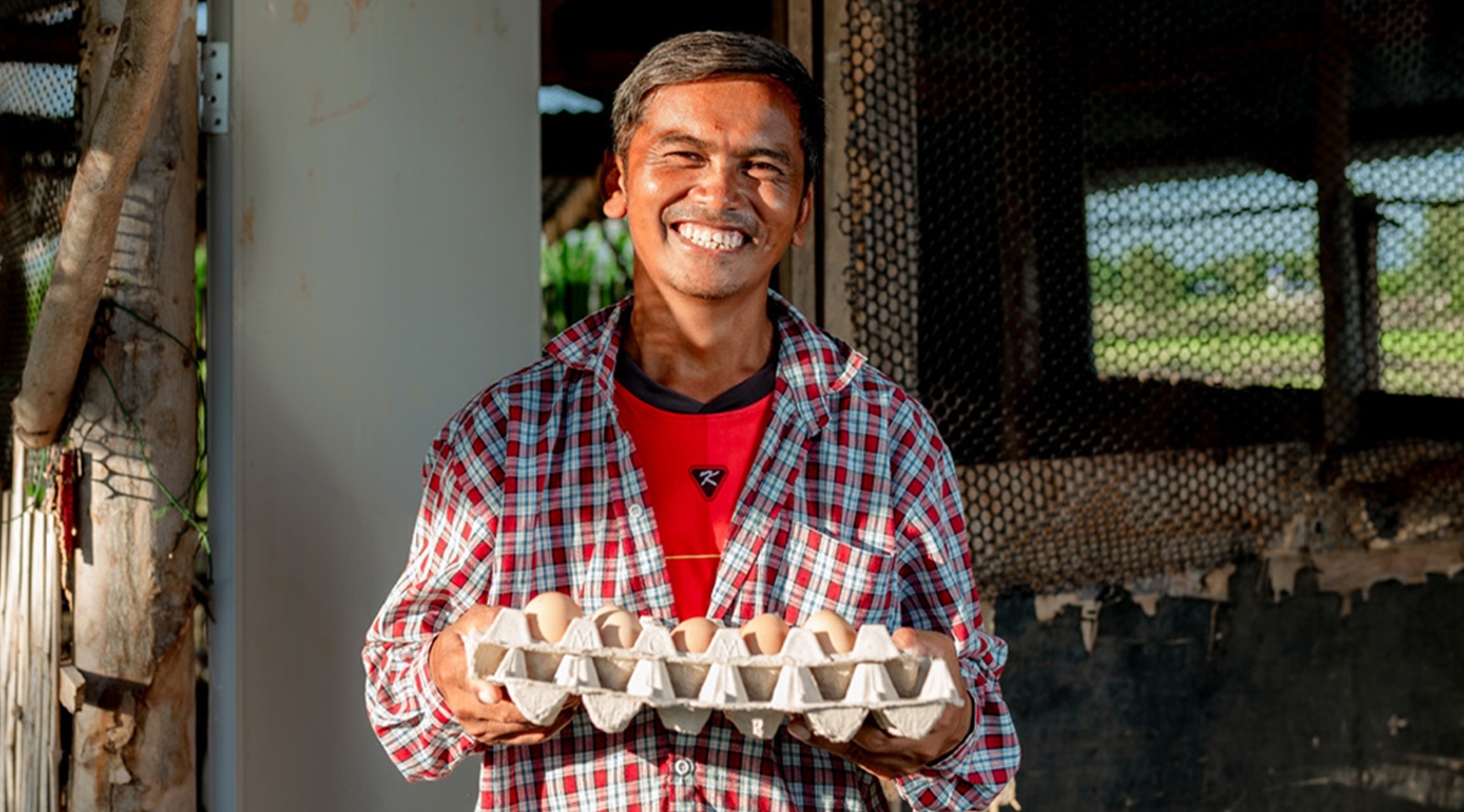
Nongsanit Organic Vegetable Cooperative
The Nongsanit Organic Vegetable Cooperative, located in Surin province, initially aimed for community development through sustainable agriculture and tourism. The objectives of this project are to promote water management, livestock farming improvement, green area expansion, foster sustainable community tourism. The learning center established by Central Retail provides training sessions on diverse agricultural topics to the community members. Central Retail helps optimize distribution channels for organic produce such as shallots, green squash, spring onion, and local red jasmine rice. Moreover, Central Retail promotes sustainable fertilizer production and livestock. The implementation of these practices has resulted in increased production of vegetables and rice all year-round, generating income for the community and contributing to a thriving local economy.
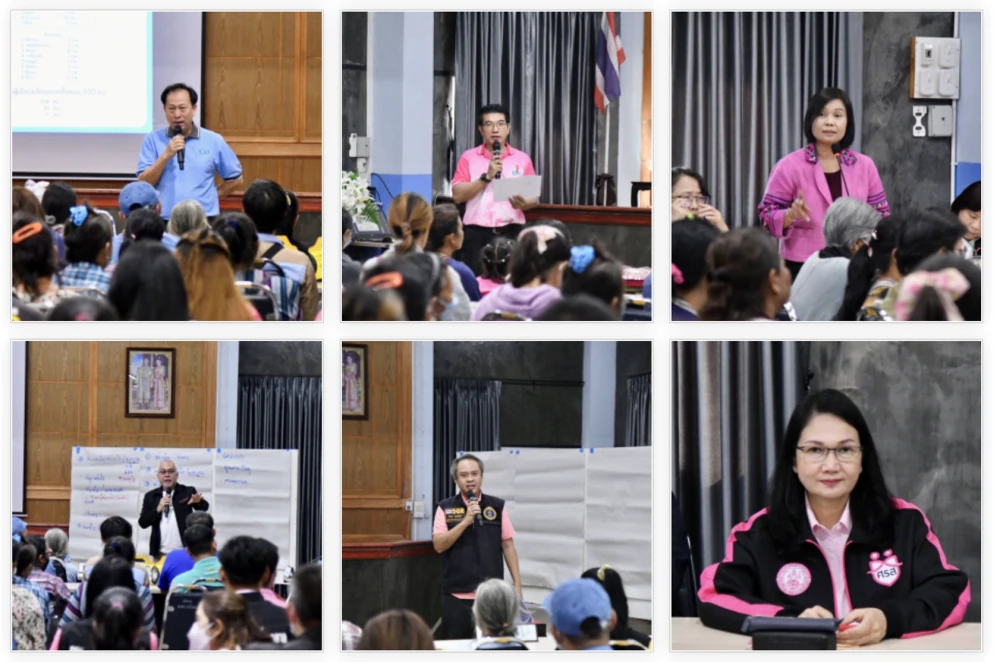
Collaborate with Ministry of Social Development and Human Security to Create Job Opportunities for Disadvantaged Groups
The Vice Chairman of the Advisory Committee for Monitoring and Accelerating the Implementation of Policies from the Minister of Social Development and Human Security, along with the Ministry of Social Development's management team and officials, local agencies, and private sector partners such as Central Tham, Good Goods, Jing Jai Market, Tops, and Lobo Company, held a meeting to discuss ways to add value to the products of members in the industrial estates through collaboration with community to create job opportunities for disadvantaged groups.





